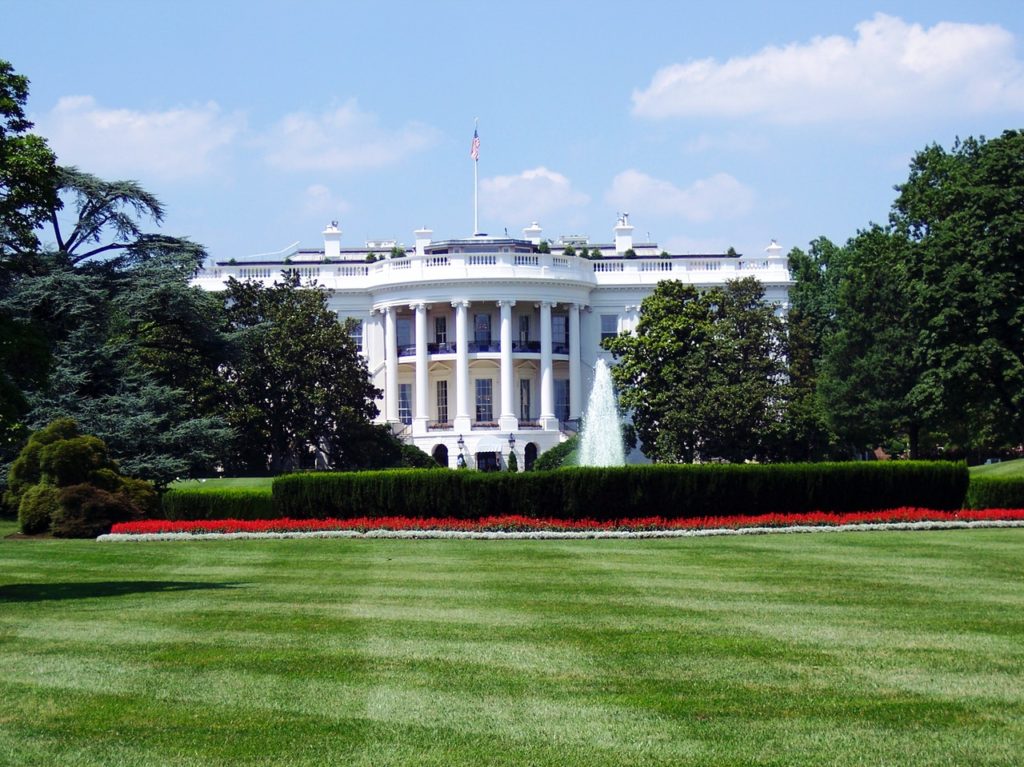Ten U.S. states have filed a lawsuit against members of the Biden administration asking the U.S. District Court of Eastern Missouri to strike down the recently announced COVID-19 vaccine mandate from the U.S. Centers for Medicare & Medicaid Services (CMS), arguing that the rule would exacerbate workforce shortages and represents overreach of federal authority.
Plaintiffs in the case include the States of Missouri, Nebraska, Arkansas, Kansas, Iowa, Wyoming, Alaska, South Dakota, North Dakota, and New Hampshire. Nine are Republican-dominated states. New Hampshire is a swing state that has favored Democrats in the most recent federal elections but currently has a Republican governor, Chris Sununu.
“The CMS vaccine mandate threatens with job loss millions of healthcare workers who risked their lives in the early days of the COVID-19 pandemic to care for strangers and friends in their communities,” the states indicated in court documents obtained by Hospice News sister site Skilled Nursing News. “The Plaintiff States seek to end this dragooning of our states’ health care heroes. Critically, the CMS vaccine mandate also threatens to exacerbate an alarming shortage of health care workers, particularly in rural communities, that has already reached a boiling point.”
The suit names agencies and individuals as defendants, including the U.S. Department of Health & Human Services (HHS) and its Secretary Xavier Becerra, CMS and its administrator Chiquita Brooks-LaSure, CMS Deputy Administrators Meena Seshamani and Daniel Tsai, as well as President Joseph Biden.
CMS and the U.S. Occupational Safety & Health Administration (OSHA) last week both issued emergency regulations pertaining to COVID-19 vaccination for workers.
The OSHA rule applies to all companies with 100 employees or more, not limited to health care. OSHA gives employers a choice of implementing a mandatory vaccination program or requiring masks and regular testing for unvaccinated staff.
The CMS rule applies to all health care providers, regardless of company size. The requirements apply to any staff who provide any care, treatment or services for the health care organization or its patients, including new and current employees as well as those under contract or other arrangement, regardless of clinical responsibility or patient contact. The rule is also applicable to staff that primarily provide services remotely that occasionally encounter fellow staff or enter a care setting.
Health care employers must implement a policy requiring staff to receive the first vaccine dose prior to providing care, treatment or services by Dec. 5. All eligible staff must have received the necessary shots to be fully vaccinated – either two doses of Pfizer or Moderna or one dose of Johnson & Johnson – by Jan. 4, 2022. Unlike OSHA, CMS did not offer a testing option for the unvaccinated.
“Ensuring patient safety and protection from COVID-19 has been the focus of our efforts in combatting the pandemic and the constantly evolving challenges we’re seeing,” said Brooks-LaSure when the mandate was announced. “Today’s action addresses the risk of unvaccinated health care staff to patient safety and provides stability and uniformity across the nation’s health care system to strengthen the health of people and the providers who care for them.”
The hospice workforce has been dwindling even as demand for care rises. Factors such as retirement and burnout are leading some clinicians to leave the field. In a Hospice News survey earlier this year, 35% of hospice leaders indicated that the staffing shortage was their No.1 non-COVID related concern for 2021, compared to 16% who cited increased competition.
The plaintiff’s court filing alleges that the vaccine regulations harm the states by exacerbating the labor shortage. The actual fallout of the mandate in terms of job loss remains to be seen as the deadline for compliance has yet to pass.
The Biden Administration in public statements has said health care officials do not expect mass resignations, based on employment numbers from states or employers who implemented their own requirements.
“Where requirements have been implemented, we have not seen widespread resignations in the healthcare work force,” a senior CMS official said in a White House Press Briefing. “In fact, we know that the requirements are an essential tool to protect patients and health care personnel.”
A survey by the Kaiser Family Foundation indicated that 5% of unvaccinated adults said they left a job due to a vaccine mandate, with more than a third of unvaccinated workers saying they would rather quit than comply. The Kaiser data were not limited to the health care space and inquired about individual employer requirements, rather than the federal action.
Fierce Healthcare recently reported that a number of hospital systems that have voluntarily required vaccination indicated that they had lost between 1% and 6% of their employees. Hospice-specific data were not available.
While hospice providers have also expressed concern about the potential for losing employees, some stakeholders have argued that the mandate would “level the playing field.” They posit that staff would be less likely to leave for a health care position at a company with no vaccine rule if all organizations are held to the same standard.
Earlier this week, the U.S. Fifth Circuit of Appeals imposed a stay order on the OSHA rule in response to suits filed by several states and some private companies. The White House pledged to defend both agencies’ mandates and urged employers not to delay their vaccine programs as they await the court’s decision.
“The new Emergency Temporary Standard is well within OSHA’s authority under the law and consistent with OSHA’s requirements to protect workers from health and safety hazards, including infectious diseases,” the White House indicated in a statement. “There is well-established legal precedent for OSHA’s authority to evaluate existing scientific evidence and apply data to develop safety and health standards.”



